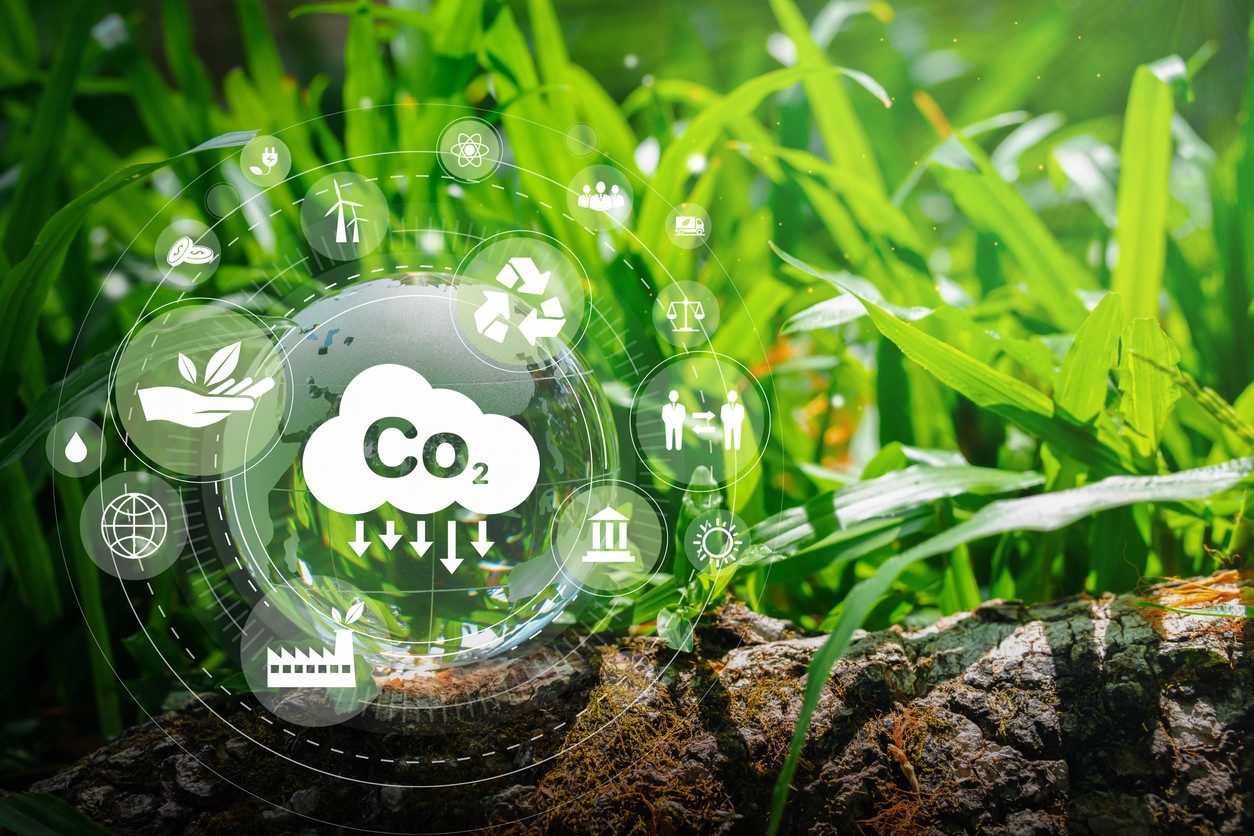
According to a new NIEHS-funded study, reducing greenhouse gas emissions can help avoid millions of premature deaths caused by air pollution over the next century. The study, led by Jason West, PhD, an assistant professor of environmental sciences and engineering at the University of North Carolina, emphasizes the advantages of air quality and human health, supporting the case for reducing global greenhouse gas emissions.
The greenhouse effect on earth is driven by various factors such as landfills, industrial activities, agricultural systems, and waste management practices. The way we harness natural gases for production also has significant effects on the environment.
The gas emissions cause severe natural occurrences like floods, earthquakes, and droughts because they enable sun heat to enter our atmosphere but not leave it. This phenomenon causes heat and warms the entire atmosphere, which also triggers climate change.
It is essential to lower greenhouse gas emissions, or the environment will continue to suffer, public safety will be in jeopardy, and more climate disasters will be brought on by pollution. Another factor is your carbon footprint which can affect your personal and professional life.
Carbon footprint is the total quantity of greenhouse gas emissions from any product’s manufacture, use, and disposal. It comprises nitrous oxide, methane, and fluorinated gases with carbon dioxide. Global warming is brought on by these gases, which trap heat in the atmosphere.
The International Agency for Research on Cancer recently categorized outdoor air pollution as a human carcinogen due to its association with the heart and respiratory conditions.
Reducing greenhouse gas emissions also lowers air pollutants and slows climate change because of less air pollution and emission of greenhouse gases from the same source. We can improve air quality and human health by reducing these co-emitted air pollutants.
How Going Solar Can Reduce Emissions

Reduced greenhouse gas emissions are one of the most well-known advantages of solar energy. You reduce your reliance on electric companies when you use the sun to power your home. By lowering CO2 emissions and preserving energy, you can do your part to help the environment.
Additionally, you can take charge of your energy requirements and save money each month on your power bills. Solar power lowers CO2 emissions and offers a clean and renewable energy source. The solar panels at your home absorb solar energy and turn it into usable electricity.
Because the energy can be stored on the grid for later use, this process does not rely on fossil fuels or other materials, and none of the energy is lost.
Additionally, PV panels don’t need water as other industrial processes do to function; you can reduce water pollution with solar energy. Solar energy generates electricity without using water resources and does not damage the passage of water like fossil fuels do.
By converting to solar-powered energy, you can significantly lower your household’s carbon footprint or the overall greenhouse gas emissions your home brings. Driving less, consuming more organic and locally grown food, line drying clothes, planting, and turning off your electronics at night are other methods to support this way of life.
Reducing Emissions is Beneficial for the Environment
The most challenging issue we face today is climate change. Recent research demonstrates that taking prompt and strong action to solve this issue and switching our economy to clean energy will benefit us significantly and help us escape some of the worst effects of unchecked global warming. We will discuss how reducing emissions is beneficial for the environment.
1. Healthy Water Supply

Global warming has badly affected the quality of air. Still, it is undeniable that greenhouse gas emissions have also impacted the availability and quality of our water. The unpredictable changes in the pattern of rainfall, in which long stretches of drought are interrupted by quick bursts of heavy rain, are made worse by global warming.
Heavy rain’s unpredictability can trigger flooding and mix pesticides and other agricultural pollutants in running drinking water. Furthermore, due to climate change, toxic algae blooms have become more frequent and strong, making wastewater treatment more difficult and causing a severe threat to both human health and rivers.
Additionally, greenhouse gas emissions increase air temperatures, which can affect the oxygen content of rainwater and result in less precipitation. The choices we take in one place have a direct influence on many others since all of our fragile ecosystems are interconnected.
Also, when we take action to lower our greenhouse gas emissions, such as switching to renewable energy sources or using the bus or train instead of everyone driving their cars, we can enhance our water quality.
2. Clean Air and Clearer Sky

However, COVID-19 has stopped many city transportation activities and proved how pristine the air could be in a world without pollution.
Air pollution considerably decreased across the country due to reduced economic activity and a reduction in the number of vehicles on the road. According to Columbia University researchers, when the lockdown was at its peak, carbon monoxide levels in various cities were 50% below average, and traffic was moving 35% more quickly than usual.
According to studies, up to 100,000 Americans yearly pass away from illnesses related to air pollution brought on by factory and automobile exhaust, power plants, and even methane emissions from nearby farms.
Reducing our carbon emissions not only improves the lives of people in cities worldwide but also helps reverse the effects of global warming.
3. Improved Public Health

The environment and our ecosystems will benefit significantly from action against climate change and improve our quality of life.
The health of the environment around us impacts everything, including the air we breathe, the food we eat, and the water we drink. Additionally, given that we know the numerous sources of greenhouse gas emissions, we can all make wiser decisions and create cleaner alternatives.
You can take immediate action by cutting back on your energy use, recycling garbage, choosing smarter products at the store, and buying carbon offsets.
You can also invest in solar energy, utilize eco-friendly transportation, and increase your home’s energy efficiency.
The most valuable resource we possess is our health, which is closely related to the health of our world. Even if it’s just one step at a time, every shift we make to reduce our carbon footprint puts us all on the road to longer, healthier lives.
4. Enhanced Global and National Security
Leading military figures have warned for years that climate change might seriously affect our country’s security and put more strain on our armed services. Climate change-related pandemics, extreme weather, droughts, changes in food production, and resource disputes may promote migration in lacking regions of the world.
It is possible to encounter global warming by reducing the nation’s dependency on oil, which comes from unstable regimes worldwide. According to UCS, investing in cleaner cars and a more effective transportation system may reduce our consumption of petroleum products by 6 million barrels per day, equivalent to the amount of oil we currently import from PEC (the Organization of Petroleum Exporting Countries).
5. Benefits for Farmers

Farmers can generate income by putting solar applications in agriculture, wind turbines, and other sustainable energy technology on their property and in their structures. Solar energy has various benefits in agriculture, and a farmer could make $3,000 a year by leasing property for one utility-scale wind turbine. According to the U.S. Department of Energy, these actions might generate an additional $1.2 billion income for American farmers and rural landowners over the next 20 years.
It is essential to address farmers about global warming to avoid the most severe effects of climate change. Many farmers can counter the increased amount of springtime flooding and heavy rains, which would delay planting, a wider range of agricultural pests, and higher temperatures, which would stress livestock and plants and lower yields in an unchecked emissions scenario.
These outcomes can all significantly increase expenditures. And while some regions of the country’s agriculture would initially gain from warmer temperatures, most regions will eventually incur losses.
Changing crop kinds, planting dates, irrigation and fertilization practices, investing in animal cooling systems, and utilizing crop insurance programs are examples of adjusting to some extent. Still, these changes will also be quite expensive.
Solar Energy: A Step Closer to Global Change
Although using solar energy is only advantageous if everyone starts switching to solar. But the change must begin somewhere, and your house will make a difference; it might inspire others in the community to follow suit. Many people are curious about solar energy but need help figuring out where to begin. Using commercial solar installation to reduce pollution, you and your friends can reduce carbon emissions and save money.
Turn to Coldwell Solar for Solar Solutions in California
The above reasons are enough for someone to take a smart and wise decision to reduce emissions quickly and drastically. Most consumers firmly support businesses that take green initiatives to encourage sustainable energy and combat climate change.
If you want to take the initiative and reduce emissions to help the environment and switch to clean and green energy, contact Coldwell Solar to learn more about the solar panel installation process.

